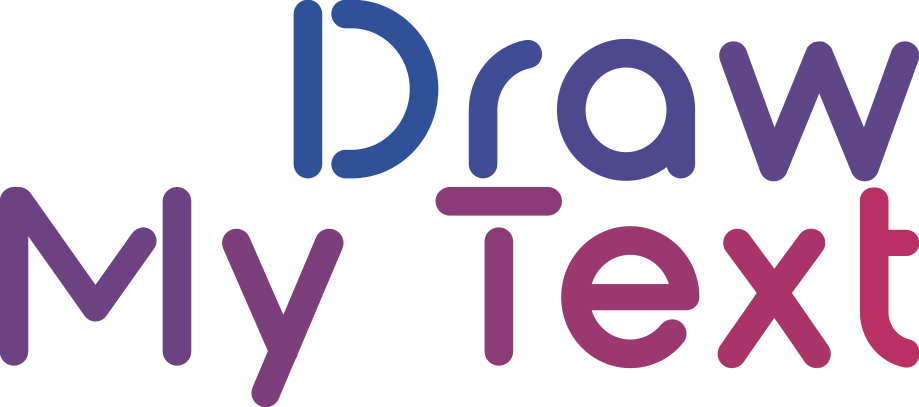
Can You Tell the Difference? A Guide to AI Content Detection
January 30, 2024
AI-Driven Healthcare: Understanding the Role of Generative Models
January 31, 2024Hi there! 😊 Have you ever wondered what it’s like to merge the endless creativity of human imagination with the processing power of machines? I’m here to take you on a remarkable journey through the realms of Generative AI in the world of fiction writing. As someone who’s spent years working with AI, I’m excited to explore how these sophisticated tools are opening new doors for storytellers and authors. So, let’s dive into the astonishing potentialities of AI, shall we?
Unleashing Creativity: Generative AI’s Role in Fiction
Generative AI, which includes technologies like natural language processing and deep learning, has significantly blurred the lines between human creativity and artificial ingenuity. Fiction writing, an art form revered for its ability to transport readers into worlds beyond their wildest dreams, is now experiencing an evolution, or dare I say, a revolution sparked by this tech. Let’s unwrap this exhilarating synergy, step by step.
I’ve personally experimented with various AI writing assistants, and I’ve witnessed the incredible efficiency with which they can generate story ideas, character bios, and even intricate plotlines. The power of Generative AI in fiction lies not only in its ability to churn out content but also in its potential to inspire, to push the boundaries of ‘what ifs’ in narrative construction.
One might ask, ‘Is there a risk of human creativity being overshadowed?’ To that, I share a reassuring perspective. AI functions as a collaborative partner, enhancing the creative process rather than supplanting it. It’s about wielding this technology to explore realms writers might not venture into unaided. And that is where the true magic lies.
Transformative Applications of Generative AI In Story Crafting
Let’s delve deeper into the transformative applications of Generative AI in story crafting. Imagine being a writer facing the dreaded writer’s block. Once where there was a void, now there’s an ever-present AI muse, ready to sprinkle creative fairy dust on your work. This collaborative dance between writer and machine often results in stories that encapsulate a fusion of unprecedented ideas and familiar human emotions.
Generative AI models, such as GPT-3 from OpenAI, have been making waves in this domain. By ingesting vast amounts of text, these models learn narrative structures and styles, subsequently generating compelling prose. Intrigued by such possibilities? Check out some mind-bending AI-generated novels that challenge our perception of authorship and creativity.
Yet, the application of Generative AI isn’t confined to text alone. It’s transcending into realms that once were exclusively human domains. For instance, creating rich and complex fictional universes, assisting in screenwriting for films and series, and even aiding in game development through dynamic storytelling. This multi-faceted applicability makes Generative AI not just a tool, but a transformative force in the landscape of fiction writing.
The Synthesis of Man and Machine in Authorship
The collaboration of human and machine in authorship is yielding a novel genre of literature. Some purists might scoff at the thought of AI in writing, but let’s pause and think. What does it mean for a machine to assist in the crafting of narratives that touch human hearts? It suggests an era where AI serves as a crucible, within which our imagination can be alloyed with computational creativity.
Through Generative AI, I’ve seen firsthand how writers can expand their stylistic range. Algorithms can analyze a writer’s previous work, mirroring their style while suggesting new narrative possibilities. This synergetic partnership is beautifully articulated on platforms like The New Yorker, where the question is posed: could AI one day capture the quintessence of an elusive muse?
If you find yourself nodding with intrigue, then I have something special for you. Our premium text-to-image generation platform, DrawMyText, offers a mesmerizing experience where your written words become compelling visuals. With competitive pricing and innovative features, it’s an indispensable tool for creators looking to bring their stories to life with visuals that can match their narratives. Check it out and enrich your storytelling toolkit today!
Embracing Generative AI: Success Stories and Ethical Considerations
While exploring the bounds of AI in fiction, it’s thrilling to see success stories unfold. Authors are publishing novels with plots and characters co-created with AI, receiving acclaim for the fresh perspectives and intricate story arcs. Yet, with new frontiers come ethical considerations. Concerns about originality, copyright, and the notion of “true” authorship are at the forefront of debates surrounding AI and authorship.
As a writer and technologist, I advocate for a balanced view. It is crucial to recognize that AI does not “create” in the way humans do; it generates based on learned patterns and data. Consequently, while navigating these waters, we must remain thoughtful stewards of these tools, ensuring that we credit human ingenuity and maintain transparent usage of AI in the arts.
It’s an enthralling time to be an artist or storyteller. Generative AI is not diluting the essence of creativity; rather, it’s serving as a catalyst for unimaginable explorations in fiction writing. It’s about harnessing this partnership to take storytelling to unprecedented heights and, in the process, redefine the boundaries of our imagination.
FAQ: Generative AI and Fiction Writing
What is Generative AI in the context of fiction writing?
Generative AI refers to machines using algorithms like natural language processing and machine learning to create new content. In fiction writing, it helps generate story ideas, characters, dialogue, and even complete narratives.
Can Generative AI replace human writers?
No, Generative AI is not about replacing human authors but rather augmenting their capabilities. It offers new perspectives and resources, allowing writers to explore creative boundaries that they may not have crossed on their own.
How does Generative AI understand and generate different writing styles?
Generative AI models analyze vast datasets containing various writing styles. They identify patterns and structures within these data and can mimic or blend these styles when generating new content, thus adapting to different authorial voices.
Is it ethical to use Generative AI in fiction writing?
Using Generative AI in fiction is ethical as long as there is transparency about its involvement and proper attribution is given. Ethical use also involves ensuring that the AI-generated content does not plagiarize existing works.
What is DrawMyText and how does it relate to AI in fiction writing?
DrawMyText is a premium text-to-image generation platform that uses AI to convert written narratives into compelling visuals. It’s a valuable tool for fiction writers looking to enhance their storytelling with descriptive images that reflect their written content.
Keywords and related intents:
1. Keywords: Generative AI, fiction writing, creativity, natural language processing, deep learning
Search Intent: Understanding how generative AI is used in fiction writing
2. Keywords: AI writing assistants, story ideas, character bios, plotlines
Search Intent: Finding AI writing tools for generating story elements
3. Keywords: Generative AI, narrative construction, writer’s block
Search Intent: Exploring ways generative AI combats writer’s block
4. Keywords: GPT-3, OpenAI, narrative structures, writing styles
Search Intent: Researching GPT-3’s capabilities in learning and mimicking narrative structures and writing styles
5. Keywords: AI-generated novels, authorship, creativity
Search Intent: Discovering examples of novels written with the help of AI
6. Keywords: Generative AI, screenwriting, game development
Search Intent: Investigating generative AI applications in screenwriting and game story development
7. Keywords: Human and machine collaboration, authorship, literature genre
Search Intent: Analyzing the impact of AI on collaboration in authorship and new literature genres
8. Keywords: Algorithms, stylistic range, narrative possibilities
Search Intent: Understanding how algorithms can help writers expand their stylistic range
9. Keywords: DrawMyText, text-to-image, storytelling tools
Search Intent: Seeking information about the DrawMyText platform and its use in fiction writing
10. Keywords: Ethical considerations, AI, fiction, originality, copyright
Search Intent: Learning about the ethical considerations of using AI in fiction writing
#Transformative Applications of Generative AI
#Exploring #Bounds #Imagination #Generative #Fiction #Writing


